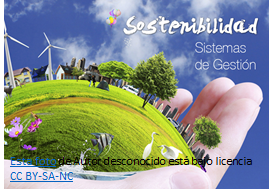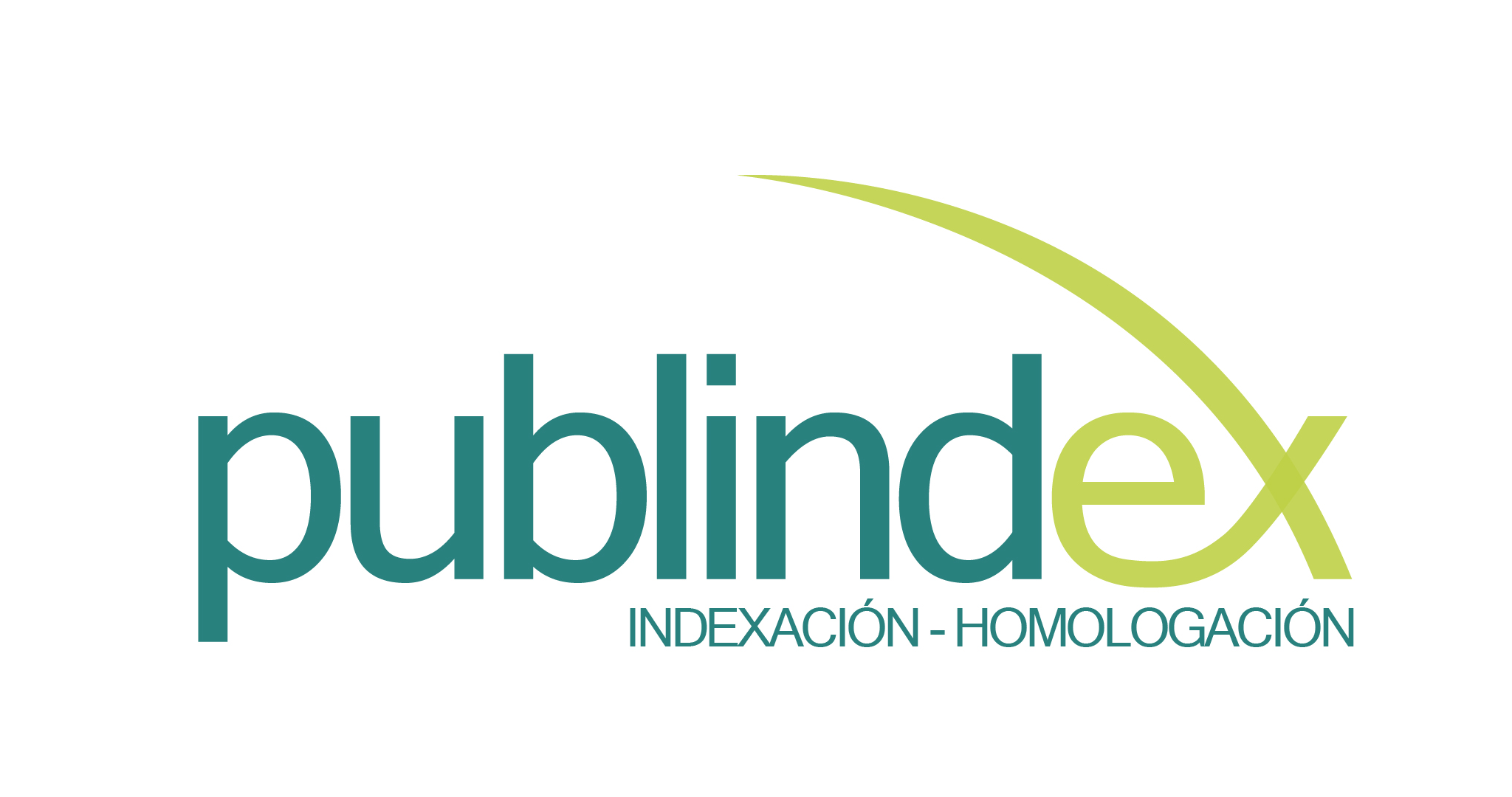Analysis categories of sustainability a theoretical and contextualized proposal for the business sector
DOI:
https://doi.org/10.17981/econcuc.41.2.2020.Org.7Keywords:
Business sustainability indicators, Categories of analysis, Economic, Social and environmental sustainability, Business theory, Theoretical proposalAbstract
Starting in 1987, international standards and indicators, accepted and assumed by most countries, have emerged that encourage organizations in general to adhere in search of a common goal, such is the case of sustainability: social, economic and environmental. In this sense, the present research aims to generate a set of categories and subcategories for the analysis of the behavior of business sustainability in the face of the challenge of meeting the sustainable development objectives. It is supported by the qualitative approach, with a documentary design. The collection and analysis of the data started from a theoretical sampling and the method of constant comparison, being the unit of analysis, the sources of supplies-collection of the different types of textual means of researchers in the area and of multilateral organizations. To establish relationships or trends from the analysis of the documentary review, the computer support of the QDA Miner tool was used. For the interpretation of the data, the nomothetic analysis technique was applied. The results showed five categories and thirteen subcategories for social sustainability, seven categories and sixteen subcategories for economic sustainability, and six categories and subcategories for environmental sustainability; for a set of eighteen categories and forty-three subcategories.
Downloads
References
Acosta, I., Pérez, M. y Hernández, J. (2009). Las Pymes en el desarrollo de la economía social. Factores de éxito. Subsector contratista del municipio Lagunillas del estado Zulia. Revista Negotium, 12(4), 100–120. Recuperado de https://biblat.unam.mx/hevila/NegotiumRevistadecienciasgerenciales/2009/no12/6.pdf
Aramayo, A. (agosto 18, 2012). Diseñando la estrategia empresarial. grandespymes. com. [Online]. Disponible en http://www.grandespymes.com.ar/2012/08/18/disenando-la-estrategia-empresarial/?utm_source=twitterfeed&utm_medium=twitter/
Barcellos, L. (2010). Modelos de gestión aplicados a la sostenibilidad empresarial. [Tesis Doctoral no publicada]. Universidad de Barcelona, España. Disponible en http://diposit.ub.edu/dspace/bitstream/2445/35386/2/LBP_TESIS.pdf
Batista, C. y Guacari, V. (2018). Innovación y competitividad en las PYMES de alimentos y bebidas de Cartagena. Revista Opción de La Universidad del Zulia, 34(18), 420–448. Disponible en https://produccioncientificaluz.org/index.php/opcion/article/view/23943
Bradford, H. (octubre 2, 2018). Sostenibilidad. Un asunto de gestión empresarial. semanasostenible.com. [Online]. Disponible en https://sostenibilidad.semana.com/hablan-las-marcas/articulo/sostenibilidad-un-asunto-de-gestion-empresarial/41771
Brundtland, G. (1987). Report of the World Commission on Environment and Development: Our Common Future. [A/42/427]. [Online]. Disponible en http://www.un-documents.net/wced-ocf.htm
Casas, J. (2017). Implicaciones de los acuerdos del Fondo Monetario Internacional sobre la pobreza en Colombia. Económicas CUC, 38(1), 9–36. http://dx.doi.org/10.17981/econcuc.38.1.01
Chumaceiro, A. y Hernández, J. (2012) La legislación tributaria venezolana como promotora de la responsabilidad social empresarial. Revista OIKOS, 16(33), 53–68. Disponible en http://ediciones.ucsh.cl/ojs/index.php/Oikos/article/view/1041
Comisión Europea. (2020). Responsabilidad social de las empresas (RSE). [Online]. Disponible en https://ec.europa.eu/info/business-economy-euro/doing-businesseu/corporate-social-responsibility-csr_es
De la Torre, M. (2018). Utilización del sector financiero para el lavado de dinero: perspectiva desde la legislación ecuatoriana. Jurídicas CUC, 14(1), 145–166. http://dx.doi.org/10.17981/juridcuc.14.1.2018.7
Duygulu, E., Ozeren, E., Işildar, P. & Appolloni, A. (2016). The Sustainable Strategy for Small and Medium Sized Enterprises: The Relationship between Mission Statements and Performance. Sustainability, 8(7), 698. https://doi.org/10.3390/su8070698
Elkington, J. (2004). Enter the Triple Bottom Line. In: A. Henriques and J. Richardson (Eds.), The Triple Bottom Line, Does It All Add up? Assessing the Sustainability of Business and CSR (pp. 1–16). London: Earths can Publications. https://doi.org/10.1108/13598540910941948
Epstein, M. (2009). Sostenibilidad empresarial. Bogotá, D.C.: Ecoe.
Epstein, M. y Roy, M. (2009). Implementing a corporate environmental strategy: Establishing coordination and control within multinational companies. Business strategy and the environment, 16(6), 389–403. https://doi.org/10.1002/bse.545
Etkin, J. (2015). Capital social y valores en la organización sustentable. Buenos Aires: Granica.
Fuentes, D. D., Toscano, H. A. y Sepúlveda, V. R. (2019). Enterprise Sustainability: Literature Review in the Context of SMEs Worldwide. Revista Opción de La Universidad del Zulia. 35(25), 1526–1558. Disponible en https://produccioncientificaluz.org/index.php/opcion/article/view/32346
Glaser, B. y Struss, A. (1967) El desarrollo de la teoría fundada. Chicago: Aldine.
GRI. (2018). Sustainability reporting guidelines. Ámsterdam: GRI. Disponible en https://www.globalreporting.org/standards/gri-standards-translations/gri-standards-spanish-translations-download-center/
Gómez, A. J., Murillo, R. S. y Rodríguez, A. E. (2018). Diseño y desarrollo de una herramienta de diagnóstico integral empresarial. Revista Opción de La Universidad del Zulia. 34(18), 762–796. Disponible en https://produccioncientificaluz.org/index.php/opcion/article/view/23953
Henríquez, G., Rada, J. y Torrenegra, A. (2016). Medición de variables psicológicas, económicas y sociales para identificar factores ocultos de los emprendedores en Barranquilla. Económicas CUC, 37(1), 179–202. https://doi.org/10.17981/econcuc.37.1.2016.08
Hernández, B. (2010). Estrategia empresarial para el desarrollo sostenible. [Online]. Disponible en https://www.monografias.com/trabajos80/estrategia-empresarialdesarrollo-sostenible/estrategia-empresarial-desarrollo-sostenible2.shtml
Hernández, L. y Portillo, R. (2016). Profesionalización empresarial en empresas familiares. Una construcción teórica. Barranquilla: Universidad de la Costa.
Hurtado, J. (2000). Metodología de la investigación holística. Caracas: Fundación Sypal.
Justribo, A. y Zaragoza, B. (2014). ¿Qué narices es esto de la sostenibilidad? Descubriendo nuevas oportunidades del negocio para el gran consumo. Barcelona: Profit.
Malesios, Ch., Skouloudis, A., Kumar, P., Abdelaziz, F., Kantartzis, A. & Evangelinos, K. (2018). Impact of small- and medium-sized enterprises sustainability practices and performance on economic growth from a managerial perspective: Modeling considerations and empirical analysis results. Business Strategy and the Environment, 27(7), 960–972. https://doi.org/10.1002/bse.2045
Marqués, M. (2015). Sostenibilidad, comunicación y valor compartido. El discurso actual del desarrollo sostenible en la empresa española. [Tesis Doctoral]. Universidad Complutense de Madrid, Madrid, España. Disponible en https://eprints.ucm.es/42084/1/T38628.pdf
Nuñez, G. (2016). El sector empresarial en la sostenibilidad ambiental: Ejes de interacción. Santiago de Chile: CEPAL.
OIT. (2011). Principios de la OIT para los objetivos de desarrollo del milenio. [Online]. Disponible en http://www.ilo.org/global/lang--es/index.htm
ONU. (2015). Crecimiento económico y desarrollo sostenible. [Online]. Disponible en https://www.undp.org/content/undp/es/home/sustainable-development-goals/goal-8-decent-work-and-economic-growth.html
ONU. (1999). Los diez Principios del Pacto Mundial. [Online]. Disponible en https://www.pactomundial.org/2015/02/10-principios-del-pacto-mundial/
Paredes-Chacín, J. (2017). Planificación financiera ante la perspectiva organizacional en empresas cementeras del estado Zulia-Venezuela. Económicas CUC, 38(1), 105–132. https://doi.org/10.17981/econcuc.38.1.05
Paz, A., Harris, J. y Franco, F. (2016). Responsabilidad social gestión compartida con el emprendedor social en empresas mixtas del sector petrolero. Económicas CUC, 37(2), 47–68. https://doi.org/10.17981/econcuc.37.2.2016.03
Pérez, M. (2019). Modelo Estratégico Gerencial para el Desarrollo Sostenible del Sector agroindustrial. Venezuela: Fondo Editorial UNERMB.
Pérez, M., Acosta, I. y Chumaceiro, A. (2019). Sostenibilidad social en el sector agroindustrial. Un constructo para su desarrollo. Revista Opción de La Universidad del Zulia. 35(90), 100–149. Disponible en https://produccioncientificaluz.org/index.php/opcion/article/view/30460
Rathe, L. (2017). La sustentabilidad en los sistemas socio-ecológicos. Revista Utopía y praxis latinoamericana, 22(78), 65–78. Disponible en https://produccioncientificaluz.org/index.php/utopia/article/view/22635/22444
Reales, A. (2016). La democracia representativa en el marco de los derechos humanos en Colombia. Jurídicas CUC, 12(1), 9–16. http://dx.doi.org/10.17981/juridcuc.12.1.2016.1
Reed, D. (2017). Ajuste estructural, ambiente y desarrollo sostenible. Caracas: Nueva Sociedad.
REPSOL. (2019). Plan global de sostenibilidad 2019. [Online]. Recuperado de https://www.repsol.com/imagenes/global/es/plan-global-sostenibilidad-2019_tcm13-148662.pdf
Rojas, C. (2016). Labor flexibilization in Colombia. Jurídicas CUC, 12(1), 17–29. Retrieved from https://revistascientificas.cuc.edu.co/juridicascuc/article/view/1113
Sandoval, C. (2002). Investigación cualitativa, Programa de Especialización en Teoría, Métodos y Técnicas de Investigación Social. Bogotá, D.C.: Arfo.
Sexian, J. (2009). Sustaining the global food supply chain three key to gaining competitive advantage. New York: UN DESA.
Strauss, A. y Corbin, J. (2002). Bases de la investigación cualitativa: técnicas y procedimientos para desarrollar la teoría fundamentada, Medellín: Universidad de Antioquia.
SAM. (2018). Sustainable Asset Management. [Online]. Disponible en https://www.sustainabilityhq.com/subscriber-only-pages/asset-managers/sam-group/
Vera, M. (2007). Significado de la calidad de vida del adulto mayor para sí mismo y para su familia. Revista Anales, 68(3), 284–290. https://doi.org/10.15381/anales.v68i3.1218

Published
How to Cite
Issue
Section
License
Copyright (c) 2020 María Elena Pérez Prieto, Ivonne Cristina Acosta Campos, Marilú Tibisay Acurero Luzardo

This work is licensed under a Creative Commons Attribution-NonCommercial-NoDerivatives 4.0 International License.
You are free to:
- Share — copy and redistribute the material in any medium or format
- The licensor cannot revoke these freedoms as long as you follow the license terms.
Under the following terms:
- Attribution — You must give appropriate credit , provide a link to the license, and indicate if changes were made . You may do so in any reasonable manner, but not in any way that suggests the licensor endorses you or your use.
- NonCommercial — You may not use the material for commercial purposes .
- NoDerivatives — If you remix, transform, or build upon the material, you may not distribute the modified material.
- No additional restrictions — You may not apply legal terms or technological measures that legally restrict others from doing anything the license permits.

 English
English
 Español (España)
Español (España)














